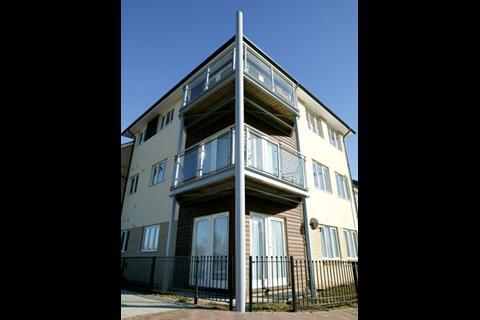Tackling the environmental impact of housing is a question of showing the great British public how much they can save by reducing their energy consumption, says Nicholas Doyle
There are already some good examples of sustainable building, but if we are to move any closer to zero-carbon housing we need to make the technologies that enable this more accessible.
To make sustainability mainstream, we need to realise that it is people who will drive forward and deliver long-term environmental change. Therefore, we need to make green technology more affordable and cost-effective, and raise people’s awareness of their impact on the environment.
At Places for People (PfP) we have begun to prioritise sustainability on all our projects. One example is Broughton Square, a £27m development of 229 homes on the edge of Milton Keynes. This scheme demonstrates that sustainable housing can be delivered cost-effectively on a large scale. All homes on the site met the former EcoHomes “excellent” standard at an additional cost of £1,880 per property – significantly lower than previously possible.
The development comprises properties for private sale, shared ownership, affordable rent and intermediate rent for key workers – evidence that sustainability need no longer be reserved for elite housing.
Of course, sustainability is not just about new housing – building sustainable new homes can only cut 5% of carbon emissions by 2050. In contrast, improving the efficiency of the UK’s existing housing will have a far greater impact.
This is a monumental task – more than 500,000 homes will have to be refurbished every year from now until 2050 if we are to meet the government’s target of cutting emissions by 60%. Already the housing industry is failing to keep pace.
One of the ways we are improving the thermal efficiency of properties is through the “affordable warmth” strategy, to provide efficient heating in homes and tackle fuel waste. Under this scheme PfP, in partnership with energy companies, spent more than £3m insulating 6,500 homes and providing 300,000 low-energy light bulbs to residents. As a result, some customers have saved up to £200 a year on their energy bills, which has added up to an overall saving of £13.4m for 100,000 customers and a 46,000-tonne reduction in CO2 emissions.
Encouraging customers to think about the energy they use and its cost and environmental impact can also have a dramatic effect on their behaviour and, hence, on emissions. One way of doing this is to install display meters in developments that show residents how much electricity they are using, how much it costs, and how much CO2 they are emitting. This encourages them to think about and reduce energy waste – on our developments we have recorded an average saving of 13% through this method.
It may not be possible to eliminate the need for energy completely, but we can generate it in an eco-friendly way. The government has said 20% of the UK’s energy should come from renewable sources by 2020. To achive this, the government, the industry and energy companies must provide cost-effective renewable sources of power.
The British renewables industry has always had an enviable reputation. The UK has, perhaps, the world’s widest choice of renewable sources, including wind, hydro, biofuels, geothermal, tidal and solar power.
At PfP, we are using wind turbines and photovoltaics on many projects and are trialling low-carbon technologies such as combined heat and power units and ground-source heat pumps, too.
We have also been working with manufacturer Viridian Solar to install low-cost solar panels in 250 homes, which provide heat for up to 60% of the residents’ annual hot water demand.
By integrating the technology into the build programme the solar panel units cost below £1,000 per household – about a quarter the cost of some traditional solar power systems.
The housing industry’s approach to sustainability must be long-term and focus on reduced costs for customers. This means finding new ways to reduce energy consumption and waste production, and making funding go further.
The environment can no longer be the preserve of the elite or confined to one-off projects. We must now finally get the agenda to move from the margins to the mainstream.
Postscript
Nicholas Doyle is director of sustainability at PfP































No comments yet